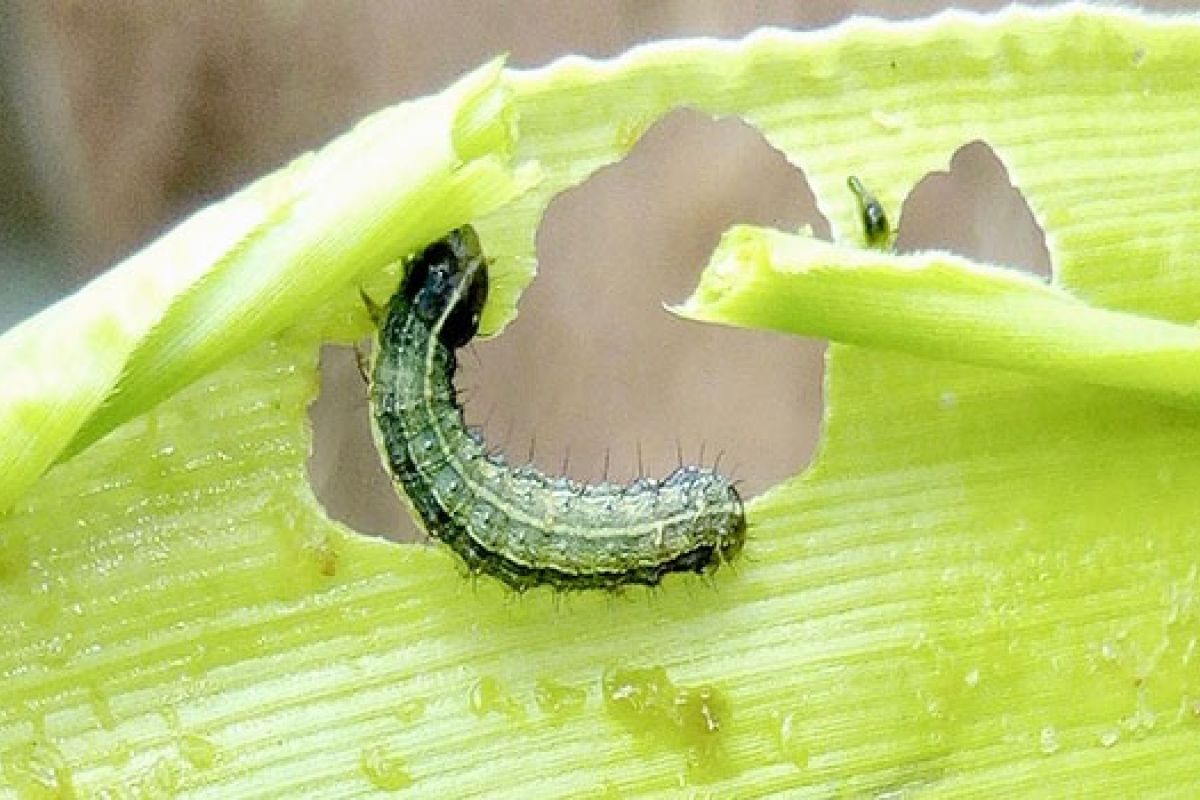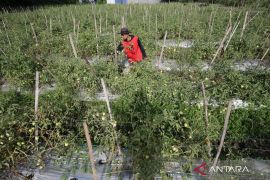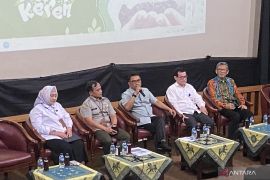The Directorate of Plant Protection of the Agriculture Ministry has urged all provinces to remain vigilant and responsive to safeguard against the attacks of the fall armyworm (Spodoptera frugiperda).
“We are closely monitoring the movement of the fall armyworm in Indonesia. Our extension workers have worked on the field to advise farmers on how to protect crops and reduce the damage caused by this attack. We anticipate that the fall armyworm attack is going to infest corn fields right across Indonesia in the coming months,” the ministry’s Director of Plant Protection, Edy Purnawan, revealed here on Wednesday.
Related news: Ministry takes precautionary measures against armyworm pest attacks
Fall armyworm was first detected In Indonesia in West Sumatra in March this year, and within four months, the pest has spread to 12 provinces in Indonesia in Sumatra, Java, and some parts of Kalimantan.
The Agriculture Ministry has been accruing information on the losses incurred from crops infested and damaged by the pest.
On-field measures adopted comprise the local government's extension workers raising awareness among farmers in the affected areas and conducting joint monitoring of the fields that have been attacked.
The fall armyworm is native to the Americas. However, since 2016, it has been aggressively moving ever eastwards, sweeping across Africa, and making landfall for the first time in Asia in mid-2018 in India, and by January of this year, it has since spread to Bangladesh, China, Myanmar, Sri Lanka, and Thailand before arriving in Indonesia.
The fall armyworm has reportedly infested 40 thousand hectares in Sri Lanka and damaged some 20 percent of its crops. China is the biggest corn producer in Asia and second-largest producer globally.
Although economic losses there and in the other Asian countries had yet to be tallied, economic damage from the pest in Africa is estimated to lie in the range of US$1-3 billion.
In response to the sudden onset of the fall armyworm in Asia, the FAO convened a meeting of officials from countries across the region in March and brought in experts, who have been tackling the pest in Africa and Latin America and learning ways to restrict the damage.
In Indonesia, the FAO is supporting the government as it responds to the outbreak and advises farmers on how to respond to the attack.
“The government will be co-organizing a national workshop with FAO at the end of July to agree on the most effective course of action to respond to this attack. We will take a cue from other countries that have already been responding to their own infestations,” FAO Representative in Indonesia Stephen Rudgard remarked in a statement, Wednesday.
Following confirmation on an infestation, governments initiate efforts to continue to step up awareness and monitor the presence and spread of fall armyworm on corn and other crops.
The FAO has been working along with the relevant authorities to initiate awareness programmes that inform and train farmers on integrated pest management techniques.
These include identifying natural enemies of the fall armyworm and enhancing natural biological and mechanical controls, such as crushing egg masses and employing the use of biopesticides.
Indonesia has several natural enemies of this pest, and farmers can attract these animals to their fields, thereby curtailing infestations. A study from Ethiopia showed that one wasp parasite had killed almost half the pest population within a span of two years of the confirmed arrival of fall armyworm in the country.
Careful consideration is necessitated on the use of chemical pesticides, given that the pest caterpillars remain shielded from sprays, as they hide deep in the crop foliage, and such pesticides can also have negative effects on natural enemies and the farmers’ health.
If effective measures are put in place, the negative effects of fall armyworm can be reduced, with populations maintained at low enough levels to limit economic and livelihood damage.
Related news: Jokowi lauds farmers for corn production up 3.3 million tons
Reporter: Yashinta Difa Pramudyani
Editor: Sri Haryati
Copyright © ANTARA 2019











